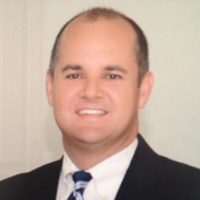 Pendleton Criminal Lawyers, North Carolina
Pendleton Criminal Lawyers, North Carolina
Sponsored Lawyers
1-5 of 5 matches
Criminal, Accident & Injury, Workers' Compensation, DUI-DWI, Personal Injury
I fight for those in my community and helping my clients is my highest priority. I will do whatever I can to ensure my clients receive the best outcome and I will look out for your interests as if I were in your shoes. I will give your case the time and attention it deserves. I have appointments available right away, you will not have to wait weeks to have your concerns addressed. In 1998, I established my practice in the heart of Halifax County, North Carolina, right on US Highway 301 across from the Halifax County courthouse. I had always worked tirelessly to help those in my community, but I knew as an attorney I could take that drive a step further. I could now fight for the rights and freedom of my clients; and today I have more than eighteen years of experience in doing so. I welcome the chance to put my knowledge and tenacity to work for you. When your freedom, health or reputation is on the line, I will take your fight on as my own.
(more)




